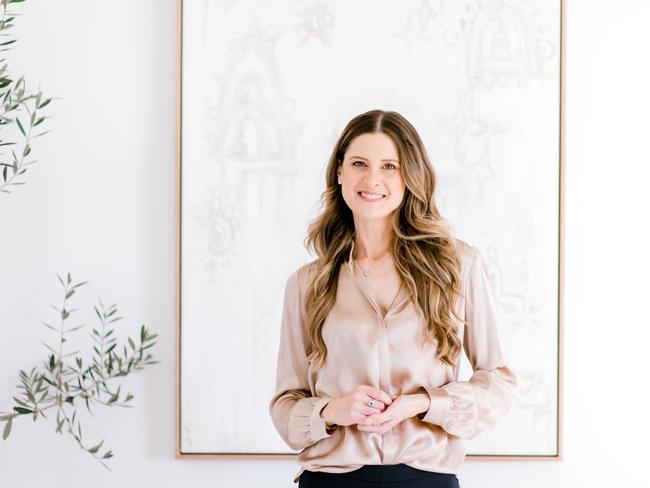‘Why do I work, look after our kids and do the housework?’
A woman has complained that her husband does what he likes while she has to run their whole lives. And it turns out she’s not alone.
Lifestyle
Don't miss out on the headlines from Lifestyle. Followed categories will be added to My News.
Welcome to Relationship Rehab, news.com.au’s weekly column solving all your romantic problems, no holds barred.
This week, our resident sexologist Isiah McKimmie hears about a woman who has complained that her husband does what he likes while she has to run their whole lives.
Question: I met my partner 10 years ago when we were in our mid-20s and were both very carefree. I loved his vivacious attitude to life and spontaneity.
Fast-forward to now and we are married with three kids and a massive mortgage to pay. My husband still behaves like he’s 25 and does things like arrange to see his mates on the weekend without checking if I mind having the kids on my own all day, or going for after-work drinks and not telling me what time he’ll be home.
Meanwhile, I’m knackered from working, looking after our kids, cleaning, cooking and generally being the CEO of our entire family.
Why does he think he can carry on with his old life while mine has been transformed into something I don’t recognise? Is it because I’m a woman that all of these responsibilities fall on me?
If he doesn’t step up I’m going to have to end it – I’d be better off on my own at this rate.
Answer: I’m sorry to hear you’re going through this. It sounds like you have a lot to juggle right now. It’s understandable that you want to feel the responsibilities in your relationship are shared equally.
Often the things that we love about someone at the beginning are the things that press our buttons later on. It’s a common dilemma I see in couples.
Albert Einstein reportedly once said: “Women marry men hoping they will change. Men marry women hoping they will not.”
I have often heard men say “I’m the same person she fell in love with at the beginning of our relationship. Why doesn’t she like me now?” I have also heard the reply from women, “That’s exactly the problem. He hasn’t changed, but our lives have.”
Life requires that we continually adapt and grow. Being able to let go of who we were for the person we’re becoming is a marker of maturity. I hope your partner is able to do this.

Women carry more of the mental load and it takes a toll
Numerous studies have shown that women do more household labour and childcare than men in heterosexual relationships. Women also tend to do more of the household planning, organising and emotional soothing of children. This is known as the “mental load”.
Carrying the mental load has consequences. It leads to higher stress for women, lower relationship satisfaction and less sex. I wouldn’t be surprised if you’re experiencing all three of these.
Men tend to over-estimate the amount of housework they do
While, in general, the amount of household work that men are doing has increased in recent years, research shows that men over-estimate the amount of household work they’re doing. This was backed by time-use tracking.
Relationships where couples share the chores equally have higher relationship satisfaction and higher sexual satisfaction than other relationships.
It’s important that you feel like an equal team with your partner for you to feel satisfied in your relationship.
Communicate about what you need
You’ve probably tried to tell your partner what you need already. You might even have been told that you’re nagging or overreacting when you’ve tried to tell him what you want.
How we share what’s bothering us with a partner can make a big difference.

Here are five steps to tell your partner what’s bothering you in a way that increases your chance of being heard.
1. Be specific about the situation that bothers you
Take on one issue at a time and be specific when you tell your partner what isn’t okay for you.
For example, you might say:
When you make plans without telling me first …
When you go out and don’t tell me what time you’ll be home …
When organising the kids is left to me …
2. Share your emotions without blame or criticism
As challenging as it might be, aim to share your emotions with your partner without judgment, blame or criticism. If our partner senses they’re being criticised, they tend to shut down or react in a defensive way.
For example, you might say:
I feel upset and frustrated.
I feel disappointed and alone.
I feel worried and upset.
3. Share your underlying needs
Needs are the underlying desires that we have around what we want. They’re bigger-picture rather than connected to a specific action.
For example, you might say:
I have a need for us both to take responsibility for our children.
I have a need for us to work as a team on household chores.
I have a need to know where you are so that I don’t worry.
4. Make a request
Making a request is a way of clearly telling your partner what you would like to happen, so that he doesn’t need to guess.
Sharing a request isn’t the same as sharing a demand. Asking for what you want is a starting point for finding a solution that works for both of you.
For example, you might say:
I’d like for you to consult with me before you make plans.
I’d like you to take responsibility for cooking dinner once a week.
I want more help doing the cooking and washing.
5. Reach agreement together
Of course, talking like this isn’t a guarantee that your partner will change his behaviour, but research has shown it increases your chance of being listened to rather than it leading to an argument.
You may also need to listen to your partner’s needs and concerns so that you can compromise in a way that feels good for both of you.
I hope that your partner is willing to take this on board. If he isn’t, it’s understandably going to continue to impact your relationship.
Isiah McKimmie is a Couples Therapist, Sexologist, Sex Therapist and Lecturer. To book a session with her, visit her website or follow her on Instagram for more advice on relationships, sex and intimacy.
Originally published as ‘Why do I work, look after our kids and do the housework?’



